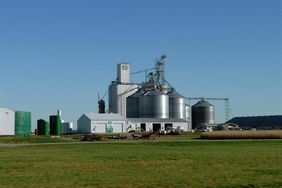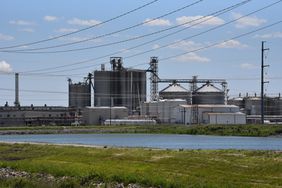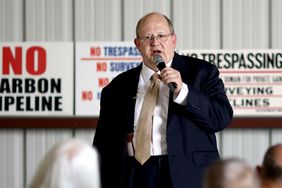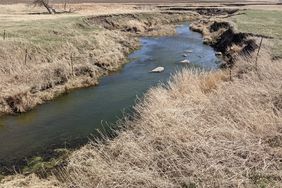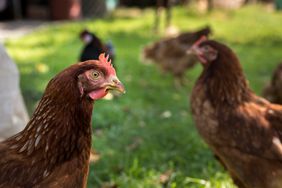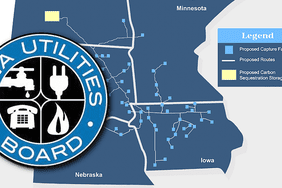:max_bytes(150000):strip_icc()/103095723-2000-81983e3a0c144ab7bd164216991980b3.jpg)
At the same time farm-state lawmakers are trying to add $2 billion to $3 billion a year to USDA conservation programs, a coalition of farmers and ag groups says the price tag for climate mitigation on the farm should be much higher — $100 per acre or $40 billion a year when fully implemented.
The coalition, Rural Investment to Protect our Environment (RIPE), says the payment of $100 an acre for voluntary climate-smart practices reflects the value farmers deliver to society. "American farmers have a pivotal role to play in tackling climate change, but they shouldn't sacrifice their own prosperity in the process," the group said.
The RIPE100 proposal would amount to three times more than the USDA currently pays farmers who practice soil, water, and wildlife stewardship on working lands.
Carbon contracts, a private-sector approach to climate mitigation, pay relatively small amounts to producers, around $25 an acre of less. The USDA pays an average $30 an acre through the Conservation Stewardship Program for working lands conservation. The Conservation Reserve pays landowners an average $54 an acre to idle large tracts of fragile cropland for 10 years or more.
By contrast, Democrats in Congress would devote $28 billion, to be spent over several years, for climate mitigation as part of the Biden administration's "build back better" bill. The scope of the $3.5-trillion bill is expected to be curtailed in coming days. Democrats on the House Agriculture Committee argued in a public letter for retention of the conservation money, as well as money for other rural projects.
"Our current farm bill conservation programs are already oversubscribed with continuing backlogs that show the demand from producers and landowners willing to undertake efforts to reduce greenhouse gas emissions and rebuild soil carbon," said the two dozen farm-state Democrats.
Dozens of conservation, farm, and wildlife groups also called for retention of the $28 billion, saying "robust funding for climate-smart agriculture represents the best opportunity in decades to meet farmer demand for conservation programs.
Most of the climate change proposals under discussion would not offer farmers enough revenue to offset the cost of adoption, says RIPE on its website. "Stronger incentives must be provided than the carbon payments alone can deliver," it says. The RIPE100 plan would allow farmers to earn money for carbon sequestration while collecting USDA payments for the greenhouse gas reductions.
Growers would qualify for the $100-an-acre payment by attending a workshop and adopting "one stewardship practice that is practical and suitable to their operations." Farmers would self-certify compliance. Enrollment would be limited initially to match the funding available.
"If the first phase is successful, agricultural representatives can advocate for expanding the program to allow farmers and ranchers to include a greater share of their operations in the voluntary program," said RIPE.
In the end, producers could enroll all the land they wish and annual cost would be "in the range of $40 billion a year," once a funding source was located. "RIPE firmly insists that funding should not come from any existing USDA programs or allocations, so that it does not remove funds from important programs."


